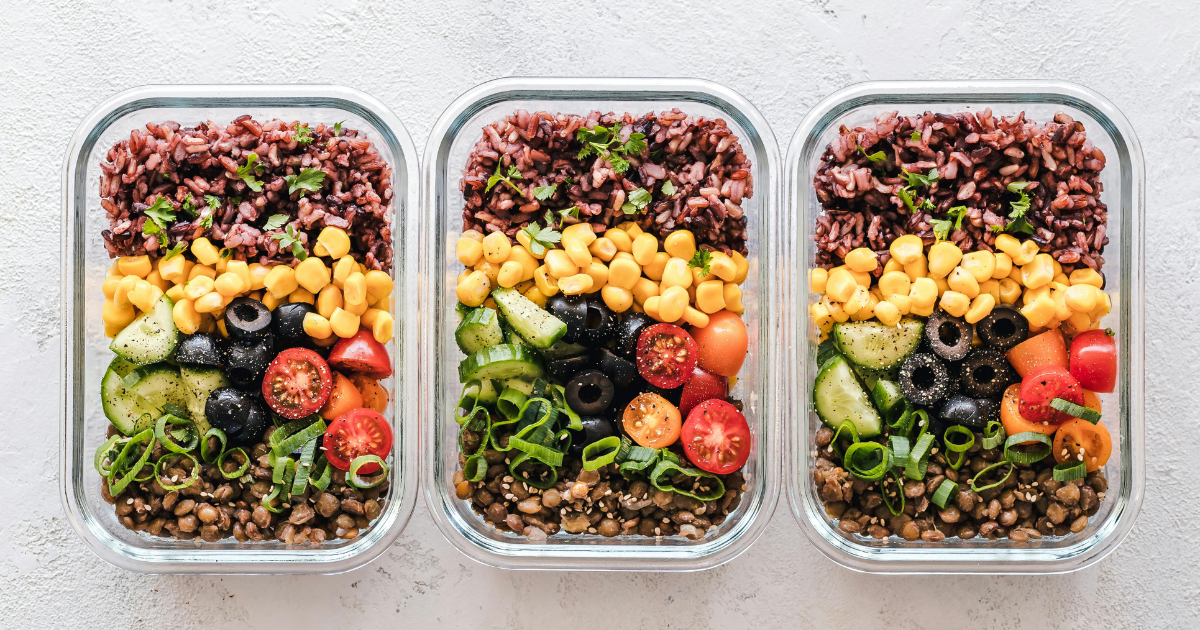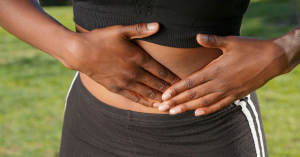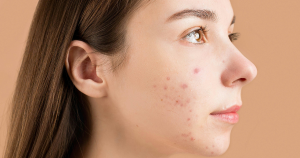Diet advice for those with chronic illnesses can be extremely overwhelming. Having endometriosis, or any type of hormonal condition, can sometimes feel like having to give up all the foods you like, one after the other, for the rest of your life.
I’m a big believer that a little bit of anything isn’t going to completely throw off the scales of hormonal balance. Following some simple rules, and executing them most of the time, is a manageable way to move forward.
Here are some research-backed general rules to follow to manage the symptoms of endometriosis, without completely perplexing you!
- Go Organic
It goes without saying that the chemicals we consume in our modern diets are messing with our natural hormonal balance. Studies show that the pesticides used to cultivate our fruit and vegetables can actively disrupt all stages of hormonal regulation. In fact, the EWG Shopper’s Guide to Pesticides in Produce™ named strawberries, spinach, kale and grapes amongst their ‘2024 Dirty Dozen’ – with 95% of samples tested containing pesticides.
Choosing organic foods and cosmetics as much as possible can significantly reduce your exposure to harmful, hormone-disrupting chemicals.
Organic produce can be expensive, and its important to note that the barrier for entry to official certification is very high. In 2022, a NORA survey found that 31% of organic farmers cited certification costs as a substantial challenge, and that figure jumped to 58% for BIPOC (black, indigenous and people of colour) respondents. Therefore being mindful about where you shop and who produces your food is extremely important when seeking out organics.
2. Avoid Inflammatory Products
To quote directly from a 2023 medical review ‘the pathophysiology of endometriosis involves the actions of estrogens and inflammatory processes. Evidence suggests that dietary factors have important effects in both of these domains.’
By boosting inflammation and affecting estrogen levels, certain foods can worsen endometriosis symptoms if consumed regularly. A sturdy, but non-exhaustive list of such products are as follows:
- Alcohol – frequent alcohol intake disrupts the communication between nervous, endocrine and immune system and can lead to hormonal disturbances
- Caffeine – Coffee and other caffeinated beverages can affect the hormones by impacting sleep and glucose control if consumed first thing in the morning
- Red meat – whilst consuming red meat can impact estrogen levels, it has also found to be a significant risk factor for developing endometriosis in the first place
- Processed foods – I’ve spoken a lot about pesticides on this blog, with many processed foods such as ready meals and canned goods containing pesticides. These foods can also alter the good bacteria inside the gut and eventually impact our immune system and its ability to self-regulate
- Gluten – whilst there is only some early evidence to suggest that a gluten free diet has a positive effect on endometriosis, the pesticides involved in modern wheat production can disrupt the immune system, leading to inflammation
- Sugar – the link between excessive sugar intake and inflammation has been well proven. Sugar intake has a huge impact on your body’s delicate hormonal functions and the digestive functions of the gut
3. Eat Anti-Oxidants
Our modern lifestyles mean that we are not only consuming toxic chemicals frequently through our food, toiletries and household products, we are also breathing them in through the air. Pollution, car exhaust fumes, UV light and even cigarette smoke mean that harmful atoms called free radicals have a potent presence in the air we breath.
An easy way to combat free radicals is to consume a lot of anti-oxidant products. Anti-oxidants interact with and neutralise free radicals in the body, essentially eradicating their chance to damage the body. Therefore, ingesting lots of anti-oxidant chemicals is your best way to fight against the harmful impact of chemicals.
A list of the top 20 anti-oxidant foods from St John’s Health can be found here, including some of the following:
- Organic berries like raspberries, strawberries, blueberries and cranberries
- Beans such as pinto, red kidney, black and small red beans
- Leafy green vegetables alongside potatoes,
- Nuts such as pecans, walnuts and cashews
- Dark chocolate
- Spices and herbs like ginger, turmeric, garlic and rosemary
It’s important to not that whilst anti-oxidants can be found in food, household and cosmetic products, they can often be mixed with other chemicals that eradicate their helpful benefits. Therefore it’s important to read labels, and go for whole foods and organic products as much as possible.
4. Consume Enough Protein
Protein is an essential part of the body’s immune system and natural hormonal balance. During digestion, protein is broken down in to amino acids. These amino acids are the building blocks for making hormones including catecholamines, serotonin, melatonin, and the thyroid hormones thyroxine and triiodothyronine.
This means that consuming a variety of different protein sources is absolutely essential for promoting a healthy estrogen balance in the body and reducing the symptoms of endometriosis.
Whilst there is no research-backed amount of protein recommended with someone for endometriosis, the general RDA rule is that you should be eating at least 0.8 grams of protein per kilogram of body weight for the average, sedentary adult (or 10-35% of your daily calories). As someone with endometriosis and a fairly active lifestyle, I personally will eat more than this, around 2g of protein per kilogram or more.
Protein sources are as follows:
- Lean meats like beef, veal and pork (though red meat should be limited as in point 2)
- Poultry like chicken, turkey and duck
- Fish and seafood – fish, prawns, crab, lobster
- Eggs
- Dairy products like milk and yogurt
- Nuts and seeds like almonds, cashews, walnuts, pumpkin and sunflower seeds
- Legumes and beans like lentils, chickpeas, tofu and other soy products
5. Focus on Fibre
Research has found that increasing dietary fibre can reduce circulating estrogen concentrations in the body. This can have a positive effect on women with endometriosis, which is linked to high levels of estrogen in the body.
Dietary fibre can be found in lots of foods, with the highest concentration in the following products:
- Beans and pulses like lentils, edamame and chickpeas
- Cruciferous vegetables like broccoli, cauliflower, kale and rocket
- Berries such as blueberries and raspberries
- Avocado
- Whole grains like whole wheat bread and pasta (though be careful of gluten, as in point 2)
- Potatoes
- Dried fruits
- Nuts like almonds and cashews







